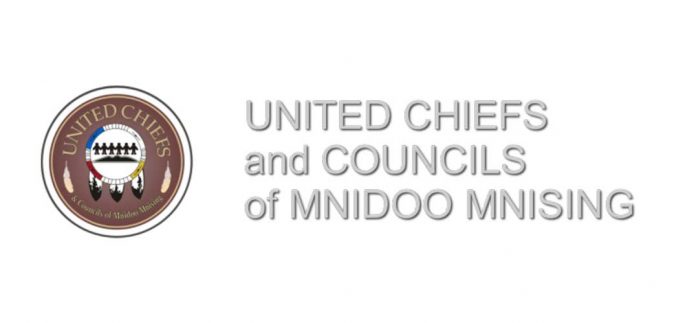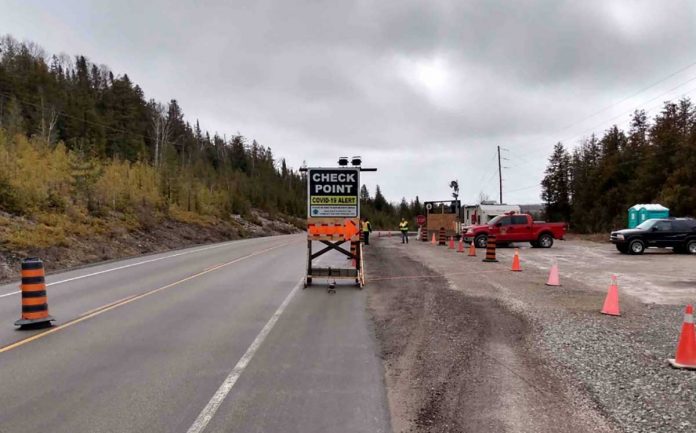MANITOULIN – Members of the Manitoulin COVID-19 leadership co-ordination committee have met this week to discuss the impact of the Victoria Day long weekend on the Island, one week after issuing a collective call for all non-essential travellers to stay home for the health of Manitoulin and the country as a whole.
“We’re going to be talking about the long-weekend impacts for COVID; did (the townships and First Nations) have troubles, or see more people coming to the Island? We have more new people coming to the committee this week so they’ll have the opportunity to speak too. It’s a good thing and it’s been productive,” said United Chiefs and Councils of Mnidoo Mnising Tribal Chair Patsy Corbiere in a Monday interview. Tribal Chair Corbiere is also the chief of Aundeck Omni Kaning.
The weekly meetings take place on Tuesdays, which falls between the print deadline and publication of this newspaper.
At last week’s meeting the committee arrived at a consensus and issued a joint statement that “non-essential travellers should stay home. We ask that everyone stay home, stay safe, and do not travel onto, or off of, Manitoulin Island. In line with both federal and provincial guidelines, we are urging people to be sensitive to the vulnerability of many of our Island’s population.”
The committee was originally planned with four First Nation and municipal representatives each, but community response has been strong and more participants are joining each week.
“We don’t want to leave out anybody. The purpose of this is dialogue and not being caught up in going through structures,” said Tribal Chair Corbiere. “It’s a good thing, we’re going to be talking about the joint things we can do together like petitioning the province for more protection or handing out information at the swing bridge.”
Last week’s meeting did involve quite a bit of discussion in establishing the terms of reference for the committee structure, however. Northeast Town Mayor Al MacNevin said he was still happy to be a member of the committee but said he would prefer to see more of an emphasis on discussing the issues rather than the formal terms of reference.
“It’s great to have these opportunities we have where we can work together, but we haven’t really gotten to that yet. I’m encouraging (those discussions) but it’s frustrating that it’s taking so long to get into those conversations,” he told The Expositor. “I think it’s great to have terms of reference but in the meantime, we can still tackle one issue at a time and see where we go.”
Tribal Chair Corbiere agreed and said the committee will address that by using the three-page terms of reference as more of a guiding framework in these early stages, rather than a strict code that would need to be signed by each of the municipal and First Nation governments (a process that could take some time considering some councils only meet once monthly).
She added that although this committee was only intended to last during the COVID-19 pandemic, she has heard from Island leaders who would like to see the collective model continue into the future.
“It’s like when the Friendship Treaty was signed (in 1990), it was supposed to be all of us working together on Manitoulin,” said Tribal Chair Corbiere. “I believe a lot of good things will come out of this when COVID is over.”





